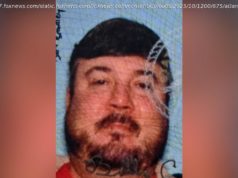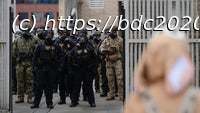“When a president can break the law without fear of impeachment, then we should really be worried.”
After President Donald Trump fired on Tuesday, it didn’ t take long for people to start talking about impeachment. “It may well produce another ” said . “It may well produce impeachment proceedings.” Vox’s made a similar argument on Wednesday, writing that Trump’s decision to fire the man charged with leading the investigation into his campaign’s ties to Russia “escalates the administration’s Russia scandal, and, for the first time, provides indications of impeachable offenses.” Does Trump’s decision to fire Comey meet the legal threshold of obstruction of justice? And is it too early to put impeachment on the table? I put these questions to Mark Tushnet, a professor of law at Harvard University who focuses on constitutional law and 20-century American legal history. Here’s what he told me. I’m in the camp of people saying that we’ve started down a path that might lead to a constitutional crisis, but aren’t quite at the point of crisis yet. And we could, of course, turn off the path before we reach the crisis stage. Now, if you ask me what the most likely path to a constitutional crisis is, here’s what I’d say. The most likely path would be either refusal by the Trump administration to name a special independent prosecutor to lead the investigation into Russia’s involvement in our election, or the nomination of someone with obviously partisan affiliations to head the FBI. This would be followed by strong resistance from Democrats and some discomfort by Republicans at what the administration has done followed by further resistance from the administration until there’s a serious erosion of support for the president in Congress. At that point, we might not be in a constitutional crisis, but we’d be at the place where people are seriously thinking about impeachment. It’s absolutely fair to put impeachment on the table right now. I don’t think it’s likely, but there’s enough smoke around to suggest that there might be impeachable conduct that we should worry about. Ultimately, this will turn on whether the Republicans decide they’ ve had enough and draw a line in the sand with Trump. But that’s a political decision, not a legal one. Impeachment itself is not a constitutional crisis, because it’s actually in the Constitution. And so an impeachment means, on some level, that the Constitution is working. It means presidential power is being checked or executive overreach is being punished by the instruments of law. When a president can break the law without fear of impeachment, then we should really be worried. The only I answer I can honestly give is that, as a technical matter, Trump’s firing of Comey is not an obstruction of justice, so long as there is somebody to step in and continue the investigation. I think an obstruction of justice has to be interfering with the investigation itself, in a direct and material way. For example, destroying evidence or making false statements to investigators. Eventually, if the investigation continues, they will ask for financial information from Trump about his connections to Russia. If he provides false information about those connections, that would be an obstruction of justice. But I don’t think Trump saying that Comey can’t run the investigation, so long as he allows someone else to run it without interference, meets the threshold for obstruction of justice. As a matter of pure law, Trump had the authority to do what he did. He had the authority to fire Comey for any reason whatsoever, including the fact that, as appears to be the case, Comey was pursuing the Russia investigation more vigorously than Trump wanted. It’s lawful for the president to fire him for that reason. Now, there’s a political problem in making up this Clinton email story as the basis for the firing when more or less everybody believes that’s not the real reason. But again, this is a political problem, not a legal problem. I would distinguish between legal checks and political checks. This incident shows that the purely legal checks are, in this context, quite weak. Maybe people didn’t realize this, but in fact the legal checks are not very strong. But there are also political checks on what the president can do, and we’re learning in real time whether those checks are effective. At the moment, I would say that the political checks are not yet effective, but they might become so. The key here would be the erosion of open support for the president. If that starts to occur, then the political checks will kick in. It hasn’t yet started to occur, and it might not occur. But we don’t know yet that the political checks can’t or won’t work. Unfortunately, you’re going to get partisan reactions to this. I think Democrats don’t trust Sessions or really anyone from the Trump administration making public statements about this stuff. I think Republicans probably, if we’re being cynical about it, know what’s being said by Trump officials is not accurate, but they don’t have any particular interest in getting out front and saying that.






